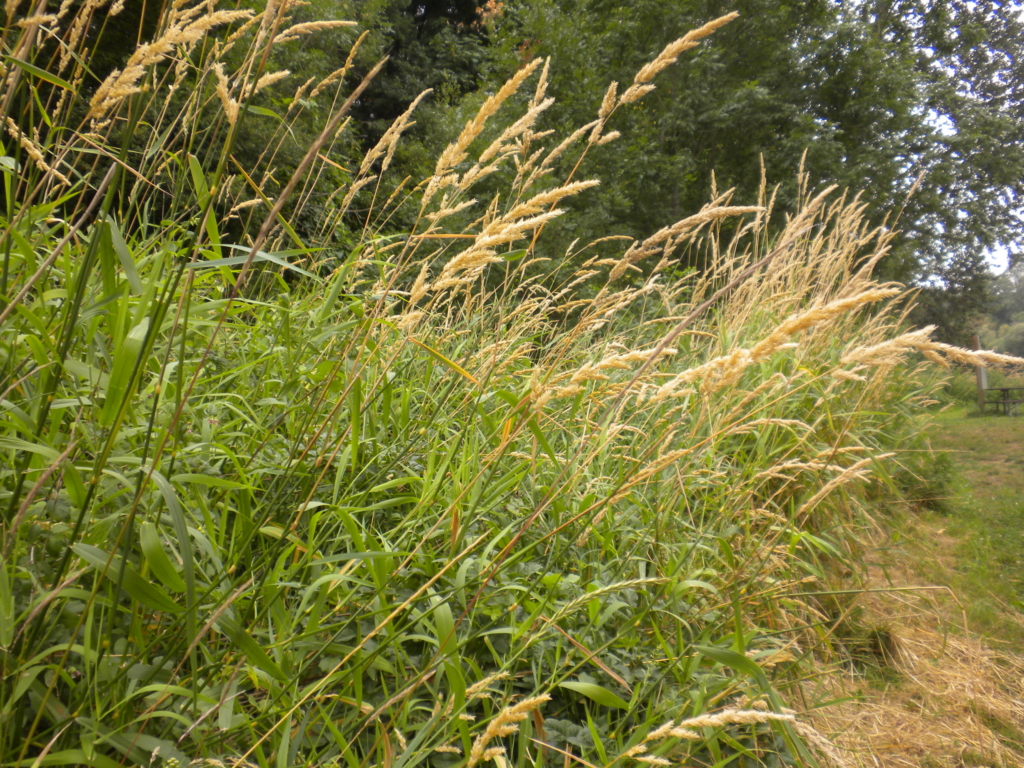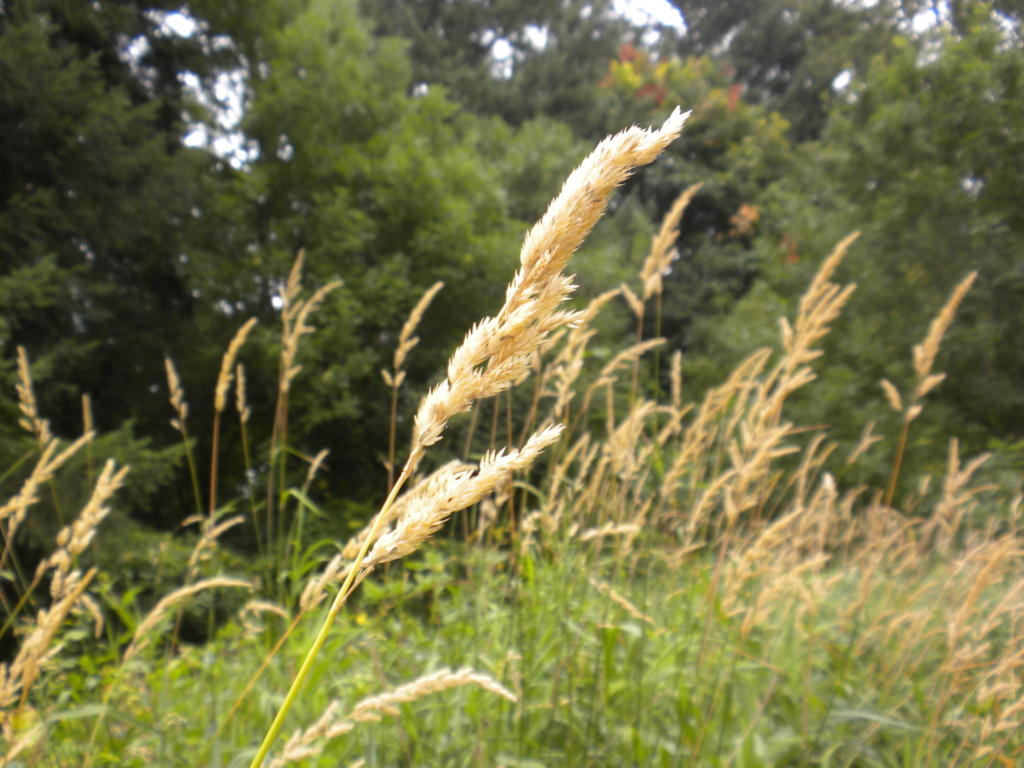Reed Canarygrass
Phalaris arundinacea
Plant Description
Tall perennial grass with rounded stems and papery membrane at base of leaves, reddish coloring near the top of stem; wide leaf blades are hairless; can have compact or open spikes. Creates dense rhizomatous mats and mounds of dead stems that inhibit re-growth of native species.
Plant Details
| Life Forms | |
|---|---|
| Habitats | |
| ODA Listing | |
| Soil and Moisture Conditions | |
| Suggested Actions | |
| Shade Preference | |
| Mature Height | 3-6' |
| Distribution | Reed Canarygrass is found throught most of North America. |
| Control | Reed Canarygrass is very widespread and very difficult to successfully remove. One option is to cover the area with shade cloth or sheet mulch thickly. Leave the cover in place for at least two growing seasons |
| Reproduction and Spread | Spreads by rhizomes, fragments, and seeds. |
| Introduced | Introduced to Oregon in 1918 for pasture and erosion control. |
| Look Alikes | Harding grass |
| Impact | Highly invasive, can form a monoculture and exclude all other native plants. |
| More Info |
|
© Marion Soil and Water Conservation District. All Rights Reserved.


